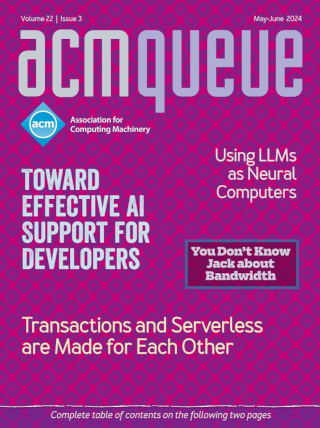
Toward Energy-Efficient Computing:
What will it take to make server-side computing more energy efficient?
By now, most everyone is aware of the energy problem at its highest level: our primary sources of energy are running out, while the demand for energy in both commercial and domestic environments is increasing, and the side effects of energy use have important global environmental considerations. The emission of greenhouse gases such as CO, now seen by most climatologists to be linked to global warming, is only one issue.
A Conversation with Steve Furber:
The designer of the ARM chip shares lessons on energy-efficient computing.
If you were looking for lessons on energy-efficient computing, one person you would want to speak with would be Steve Furber, principal designer of the highly successful ARM (Acorn RISC Machine) processor. Currently running in billions of cellphones around the world, the ARM is a prime example of a chip that is simple, low power, and low cost. Furber led development of the ARM in the 1980s while at Acorn, the British PC company also known for the BBC Microcomputer, which Furber played a major role in developing.
Commitment Issues:
When is the right time to commit changes?
One of the other people on my project insists on checking in unrelated changes in large batches. When I say unrelated, what I mean is he will fix several unrelated bugs and then make a few minor changes to spacing and indentation across the entire source tree. He will then commit all of these changes at once, usually with a short commit message that lists only the bugs he claims to have fixed. Do you think I’m being too picky in wanting each checkin to address only one issue or problem?





